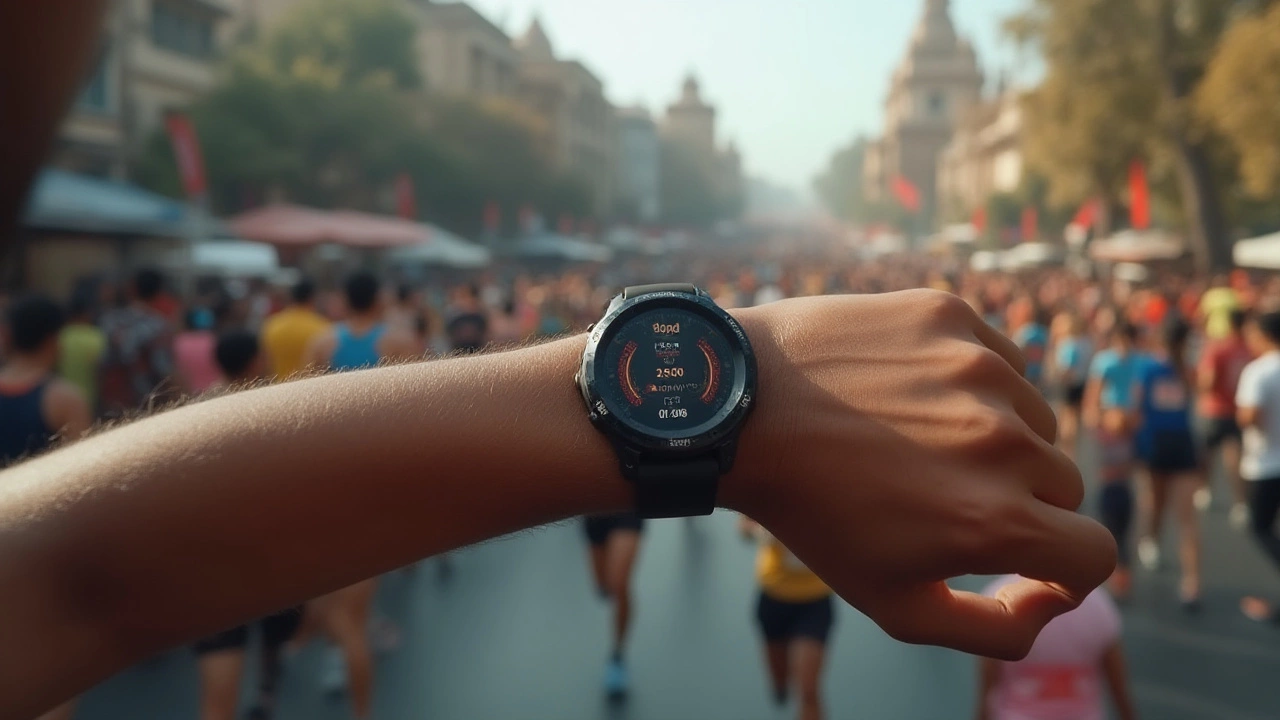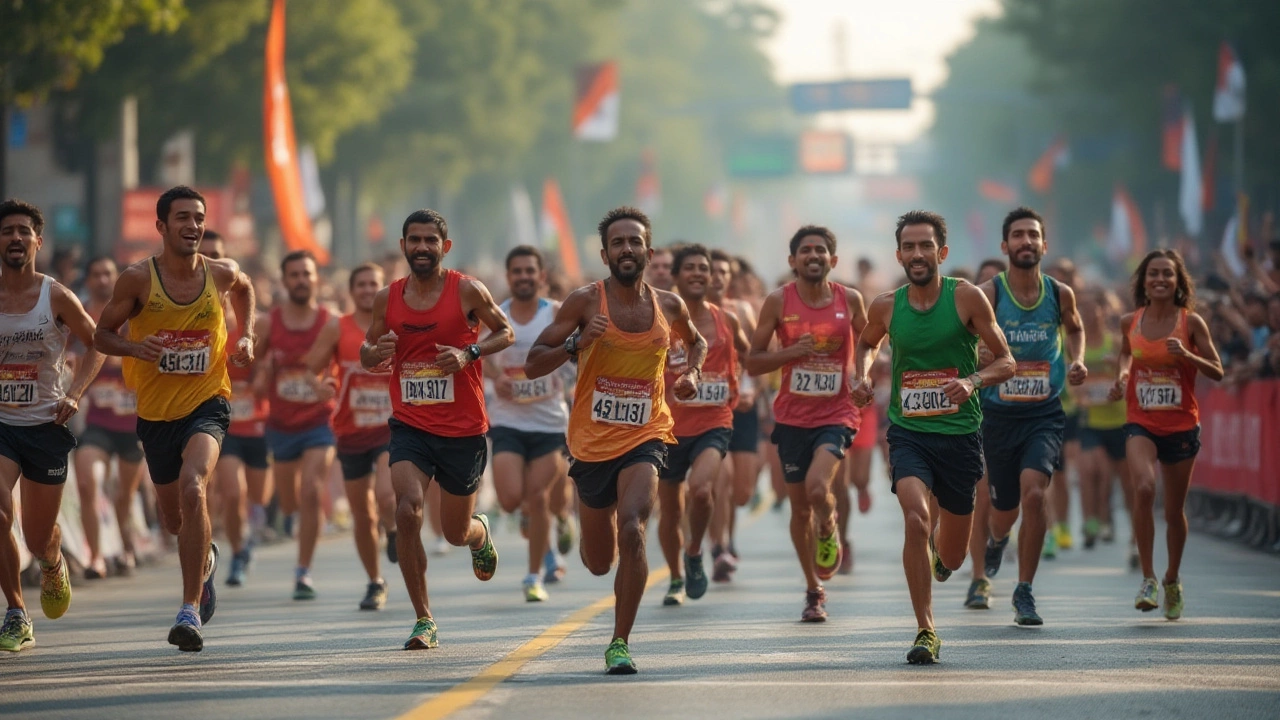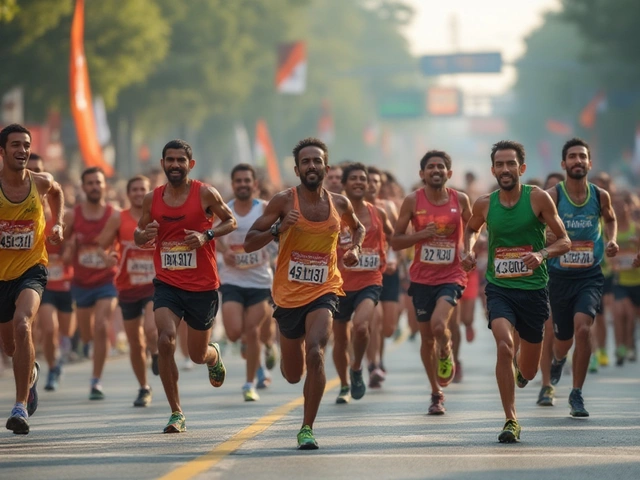If you ever heard someone drop their marathon finish time into a conversation, you might have wondered, "Was that good?" The truth is, marathon times pull you into a weird vortex of competition—with yourself and everyone else lacing up sneakers out there. Some people chase legendary records, but most runners just want to cross the line with a time they’re proud of. So, what actually is a respectable marathon time?
The Numbers: Real World Marathon Finish Times
Flip through finish line photos at any big-city marathon, and you’ll see all sorts of emotions. Tears, fist pumps, people doubled over in relief, friends hugging with hands on knees. But if everyone’s running the same course, why is there so much difference in pace?
It’s partly because marathons don’t have a standard "good" time. Context and experience matter. Still, we have plenty of data from races around the globe, and the numbers do spot some trends.
Take the New York City Marathon—a huge, diverse field. In 2023, the average finish time for men was around 4 hours, 29 minutes; for women, 4 hours, 56 minutes. That’s about where most big marathons hover these days.
To give you more perspective, here’s a quick look at some facts:
| Year | Marathon | Average Male Time | Average Female Time |
|---|---|---|---|
| 2023 | NYC Marathon | 4:29:00 | 4:56:00 |
| 2022 | London Marathon | 4:21:09 | 4:49:06 |
| 2023 | Berlin Marathon | 4:06:00 | 4:36:00 |
Now, if you break the numbers down further, things get interesting. Finish times have crept slower in the past two decades. Back in the 1980s and 1990s, with fewer runners and a more competitive field, New York’s average finish for men was closer to 3:45. These days? More runners, more solo efforts, and way more "bucket listers," so averages rise. That’s not a bad thing; more people participating is awesome. But context matters when bragging at the bar.
Here’s the thing—the vast majority of marathon finishers clock in between 3:30 and 5:30. Less than 1% of all marathoners break three hours. What does that say? Finishing at any time is worthy, but running in that 3:30–4:30 range puts you in the top tier of average runners. You’re not Eliud Kipchoge, but you’ll raise some eyebrows at any casual running group.
How Age, Gender, and Experience Change the Game
Let’s be fair—comparing the time of a 25-year-old former collegiate runner to a 64-year-old grandmother on her second marathon doesn’t make sense. Age and gender play a big part in your "respectable" window.
Plenty of races post age-group results so runners get that apples-to-apples vibe. For example, in the 50-54 age bracket at the Chicago Marathon, a men’s top 10% time is around 3:25. For women, it’s about 3:50. Fast for anyone, but especially when you consider age.
Here are typical "solid" marathon times for various groups:
- Male, age 20-39: 3:00-3:30 (very solid), under 4:00 (good at any major race)
- Female, age 20-39: 3:20-3:50 (strong), under 4:20 (good for most events)
- Male, age 50+: 3:30-4:15 is admirable
- Female, age 50+: 4:00-4:45 is a strong showing
Also, first-timers tend to land closer to the 4:30-5:30 window. Training, nerves, and race-day chaos all collide, so cut yourself some slack. Run a second or third... that’s when you can realistically shoot for time goals.
World records? They’re so ludicrously fast, they barely belong in the conversation. As of 2024, the men’s marathon world record is 2:00:35 by Eliud Kipchoge, and Sifan Hassan posted 2:13:44 for the women’s world best (note: course design, terrain, and weather affect times—New York is slower than Berlin, for instance).
But nobody expects you to sprint like Kipchoge—unless you happen to be, well, Kipchoge.

What Does It Really Mean to Finish Respectably?
The word "respectable" is a moving target. To your non-runner friends, simply finishing 26.2 miles sounds insane. For sub-elite runners, 3:10 for men (the Boston Marathon qualifying time for some age groups) or 3:40 for women gets nods of respect at most starting lines.
Truth is, running a marathon—at any pace—shows you’ve trained, planned, suffered, and shown up. Only about 1.3 million people run a marathon worldwide each year, less than 0.02% of the global population. If you’re at the line, you’re doing something rare and gutsy.
That said, many folks like setting a personal benchmark. You can use Boston qualifying times as one gold standard—because they’re officially tough to hit. Here are some current BQ standards:
| Age Group | Men | Women |
|---|---|---|
| 18-34 | 3:00:00 | 3:30:00 |
| 35-39 | 3:05:00 | 3:35:00 |
| 40-44 | 3:10:00 | 3:40:00 |
| 50-54 | 3:25:00 | 3:55:00 |
| 60-64 | 3:50:00 | 4:20:00 |
If you’ve got a regular work schedule, kids, and a million other life distractions, don’t fret if you’re not chasing 3:00. In fact, for mid-pack runners who juggle jobs, family, and training, a marathon under 4:30—especially on a tough course or rough weather—is something you can brag about endlessly at the next family dinner.
To put it differently, a respectable marathon time isn’t about beating everyone else on the tarmac. It’s about exceeding what you—or someone with your lifestyle and background—thought was possible. Whether that’s 3:10 or 5:15, wear your time like a badge.
How to Set Your Pace: Advice and Tips from the Road
Maybe all the stats still leave you wondering, "But what should I shoot for?" There’s no single answer. But there are ways to set a realistic, satisfying pace target:
- If you’re new to distance running, start with a basic goal: Be a finisher. Tune your watch, ignore pace, and let the day carry you along. Your next race can focus on speed.
- If you’ve run a half marathon, try doubling your time and adding 10-20%. Say you ran a 1:45 half, that puts you between 3:50 and 4:10 for a marathon.
- If you train with a group, compare your long-run paces—folks who run 5:15/km (about 8:30/mile) in training tend to run 3:45-4:00 on race day, as adrenaline and crowds help a bit. Just don’t go out way too hot and blow up late.
- Hit the long runs in training—not only for distance, but for the right pace. Consistent, slow long efforts are actually better than a few "hero days" at race pace, since they build stamina and keep you injury-free.
- Aim for a negative split (run your second half faster than your first). This beats fading at mile 20 and spending the final hour regretting every step.
- Respect the course and weather. Chicago is fast and flat, New York has bridges and winds. Summer races will slow you by 10-15 minutes, more if you aren’t heat-adapted.
Pro tip: Don’t let internet forums convince you everyone is running sub-3. Sometimes those voices are just the loudest. Most finishers are battling fatigue and cursing their GU packets by mile 22 just like you.
And one reassuring thing: almost no one cares about your exact time but you. People respect commitment, not specific digits. The real legends? The folks gritting it out on tired legs, rain or shine, whether they come home with a medal or a personal best.
Keep running, keep chasing what feels tough for you. That’s all the respect you need.

